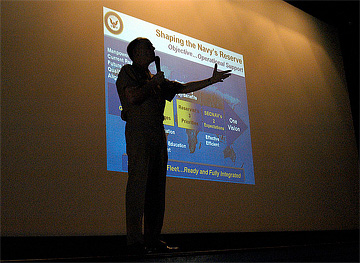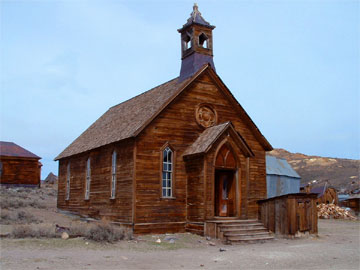When I talk about offering thoughtfully Christian reflections in this blog, I don’t mean to suggest that I’m the only one who seeks to do this. In fact, others who contribute to the Beliefnet blog conversation do this very thing (see, for example, Scott McKnight’s Jesus Creed or Ben Witherington’s The Bible and Culture). But I began to learn about thoughtfully Christian communication many years ago.
It started when I was a teenager. In my church, the First Presbyterian Church of Hollywood, thoughful preaching was the norm. My pastor, Lloyd Ogilvie (who later became my boss and mentor), preached sermons that were thoughtful in both senses in which I have been using this word. They were full of thought and delivered with kindness. I first learned from Dr. Ogilvie that one could be unapologetically Christian without communicating in an emotionalistic or strident manner.
 This lesson was reinforced many times during my years as a student. For example, while in college, I attended a series of lectures at Yale University. The speaker was Os Guinness, a prominent Christian thinker and writer with an impressive academic pedigree. Guinness was lecturing on the topic of doubt and faith, having recently written a book on the subject (In Two Minds). His audience was diverse, including more than just Christians or students. (Photo: Yale University in New Haven, Connecticut)
This lesson was reinforced many times during my years as a student. For example, while in college, I attended a series of lectures at Yale University. The speaker was Os Guinness, a prominent Christian thinker and writer with an impressive academic pedigree. Guinness was lecturing on the topic of doubt and faith, having recently written a book on the subject (In Two Minds). His audience was diverse, including more than just Christians or students. (Photo: Yale University in New Haven, Connecticut)
After one of his lectures, Guinness fielded questions from the audience. One man stood up and, rather than asking a question, made an impassioned statement contradictory to much of what Guinness had been saying about faith. I can still remember the questioner’s taut face and angry tone. All of a sudden the auditorium became eerily quiet, as people sensed the potential for an unpleasant argument. I felt a knot in the pit of my stomach. How would Guinness handle this awkward moment?
In a thoughtfully Christian way, that’s how. He spoke to his challenger with clarity and kindness. He emphasized their common ground while pointing out where they differed. As Guinness spoke with a cool mind and a warm heart, everyone in the room breathed a deep sigh of relief. He ended his statement by inviting the man to come forward after the session if he wanted to discuss things further. The questioner seemed to be satisfied and sat down.
Ten years later, I was serving as Associate Pastor of Educational Ministries at the First Presbyterian Church of Hollywood. In this capacity, I invited Dallas Willard to deliver a series of lectures on Jesus and the kingdom of God. (His material was later published in Willard’s outstanding book, The Divine Conspiracy.)
When it comes to thoughtfulness in the sense of “full of thoughts,” there are few people in the world who are as thoughtful as Dallas Willard. In his day job, he’s an accomplished professor of philosophy at USC, with world-class expertise in phenomenology. Yet he is also a careful student of the Bible and an influential writer of weighty but popular Christian books.
So, not surprisingly, Willard was full of thoughts as he lectured at Hollywood Pres. But he also exemplified thoughtfulness in the sense of kind consideration for others. His lectures were substantial, but not too academic for a lay audience. Where Willard demonstrated kindness most dramatically, though, was in his responses to questions. As I recall, he never faced an accusatory inquisitor such as Os Guinness encountered at Yale. But many who asked questions of Willard spoke simplistically. I found myself embarrassed at times. After all, I had invited one of the world’s leading philosophers to lecture at my church, and he was getting questions that seemed more appropriate for a third-grade Sunday school class.
But Dallas Willard didn’t share my perspective. He answered every single question as if it – and the questioner – were worthy of the utmost respect. He never spoke down to a single soul. Nor did he try to impress us with his brilliance. His answers were meant to explain, not intimidate the questioner or wow the rest of us.
I came away from hearing Dallas Willard’s lectures at Hollywood Pres not only with new insight into the kingdom of God, but also with a deep appreciation of Willard’s care for people. I resolved to try to be like him in my teaching. I wanted to be a person of full-orbed thoughtfulness. Of course, in 1989, I did not vow to be a thoughtfully Christian blogger, because blogging had not yet been invented. The Internet was in its infancy and the World Wide Web wasn’t just a gleam in its inventors’ eyes. But, as a pastor, an adjunct seminary professor, and a speaker, I tried to emulate the thoughtfulness I had observed in Lloyd Ogilvie, Os Guinness, and Dallas Willard. Their example convinced me that it is possible to speak and write in a thoughtfully Christian manner, even in potentially conflictual settings.
So, when I began blogging in 2003, thus engaging in a wide conversation with a diverse body of discussion partners, it felt right for me to aspire to thoughtfulness in my blogging. Now, over six years later, I am even more convinced that my calling as a blogger is to post thoughtfully Christian reflections. As I have said before, I am committed to speaking the truth in love.

